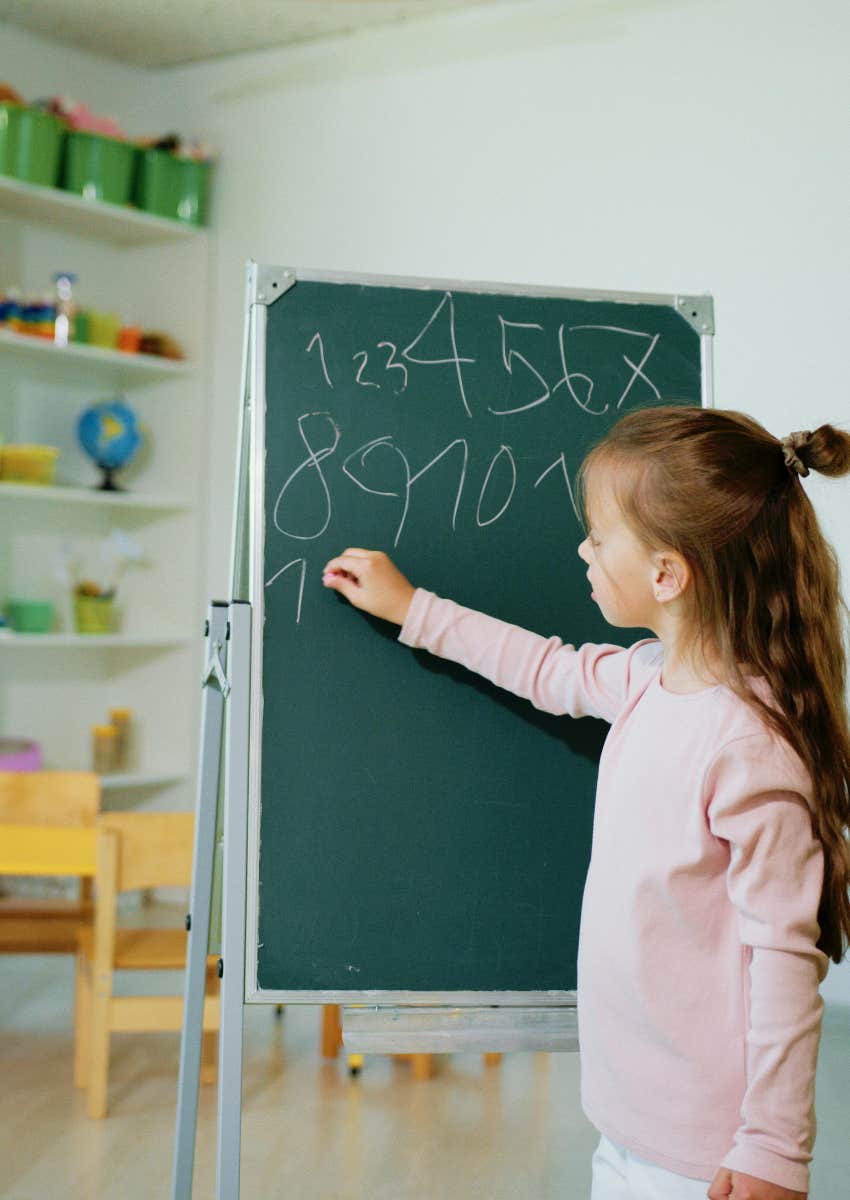Study Finds People Who Had This Embarrassing Habit In Elementary School Were Actually The Smartest Ones
If kids teased you for this, you actually came out on top.
 Maria Symchych | Shutterstock
Maria Symchych | Shutterstock Elementary school is an interesting time. Kids are just starting to develop their own social lives and learn who they are away from home. Unfortunately, it’s also a time in life that is notorious for bullying. It’s when kids have their first experiences with trying to fit in and conform as much as possible to avoid being picked on.
Some kids can be pretty critical of their peers, and this really comes out when a fellow student is not performing as well as they are. Things like needing the teacher’s help to read a passage from a book can easily seem embarrassing when you feel like you have judgmental little eyes on you. One habit in particular was considered embarrassing, but it turns out that it was actually a sign of intelligence.
Research shows that people who counted on their fingers when they were in elementary school were actually smarter.
According to Stephen Beech from Talker News, a new study published in the journal Developmental Psychology concluded that kids who used their fingers to do math when they were young displayed stronger skills in the subject later on. Specifically, kids between the ages of four and six-and-a-half who added up numbers on their fingers actually had better addition skills by the time they hit seven.
 Artem Podrez | Pexels
Artem Podrez | Pexels
A separate study conducted in France found that 30% of first-grade teachers think that children who count on their fingers are struggling to grasp mathematical concepts. But the lead author of the new study, Dr. Catherine Thevenot from Switzerland’s University of Lausanne, said that’s not true.
“Finger counting is not just a tool for immediate success in young children, but a way to support the development of advanced abstract arithmetic skills,” she stated. “This research supports encouraging children to use their fingers in arithmetic without fear that they will become stuck in limited strategies.”
It’s best to retire finger counting after age seven, though.
The study also found that students who stopped using their fingers to count after they turned seven did better in math than students who continued to count on their fingers. To conduct the study, Dr. Thevenot and Dr. Marie Krenger, a colleague, tested 211 Swiss students aged 4.5 to 7.5 on math problems.
Most children didn’t use their fingers to add until age five. Then, by the time kids were six-and-a-half, 92% of them were using their fingers. At seven-and-a-half, researchers noted that 43% of the students were “ex-finger counters,” meaning they had used their fingers to count previously but no longer did.
These students, who used their fingers to count at one point but later moved on from the habit, were observed excelling the most in math. It turns out that counting on your fingers does help.
Teachers might not like it when students count on their fingers, but that doesn’t change its effectiveness.
Another study published in the International Journal of Curriculum and Instruction concluded that some teachers did use counting on fingers as a method to teach their students math, but this was typically in younger classes. For teachers who didn’t support it, “They stated that it prevented students from doing arithmetic mentally, turned into a habit, and slowed down arithmetic calculations.”
 Yan Krukau | Pexels
Yan Krukau | Pexels
It is understandable that teachers would discourage the use of counting on your fingers. If the ultimate goal is to be able to do math in your head, counting on your fingers seems counterintuitive. Plus, what happens when you surpass the level of using numbers that can be counted using just 10 digits?
Nevertheless, using your fingers for adding problems when you’re young has actually proven to be beneficial. If you were once embarrassed by this habit when you were a child, don’t let it bother you anymore. It actually meant you were way ahead of your peers.
Mary-Faith Martinez is a writer with a bachelor’s degree in English and Journalism who covers news, psychology, lifestyle, and human interest topics.

